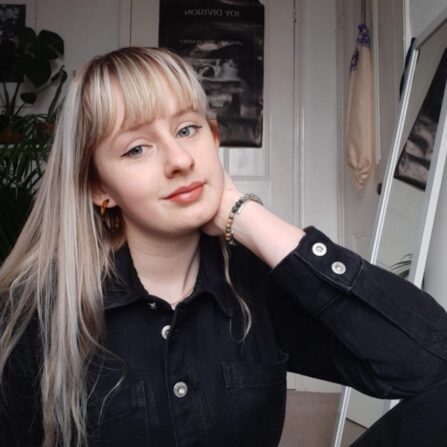
Eliška A.
Psychology with placement year, BScWhich university are you studying at?
University of Surrey.
What subjects and qualifications did you take at school or college (e.g. A Levels, IB, BTECs, EPQ)?
I took 3 A levels in Biology, Chemistry and Psychology and an optional EPQ on the topic of ADHD and quality of life.
Why did you decide to pursue this degree at university?
I knew from quite early on that I wanted to pursue a career where I would be directly working with people and knew that a degree in this subject could lead me in that direction if I wanted it to. As well as finding the subject extremely interesting from what I had read in my spare time, when I reached sixth form and started studying A level psychology it was my favourite subject by far which consolidated the idea of studying it at university.
What does an average day or week at university look like for you (e.g. lectures, practicals, independent study, other interests)?
Throughout the week I have an average of between 13-15 contact hours which are either lectures, seminars or computer labs where we do statistics work. In the mornings I tend to try and get the majority of lecture work done (either online or in-person lectures pre-covid!) and then I tend to go to the university library in the afternoons to catch up on reading and work on any assignments. In the evenings, I enjoy socialising with friends and going to any society events that I’m part of.
What aspect of your course do you most enjoy?
I think for me, I most enjoy how varied my course is. For example, in a single term you can be taking modules in anything from brain anatomy to personality theory to child development. It really keeps things interesting as you’re constantly being exposed to such a broad range of topics.
What do you find most challenging about your degree?
I think the greatest challenge so far for me has been getting to grips with managing my time. I don’t have as many contact hours as I did at sixth form and so it’s hard to find balance between socialising, running societies and also actually getting my university work done!
What are your aspirations after your degree?
One day (hopefully in the not too distant future!) I hope to qualify as a clinical psychologist within the NHS, alongside running my own private practice and regularly publishing research.
What would be your top piece of advice for anyone wanting to study psychology?
My top piece of advice would be to make yourself a “timetable” to help you keep track of all your commitments. Make sure you’re taking time off from work too. Also, in most universities your first year doesn’t count towards your overall degree mark, so just enjoy it and find out what works for you in terms of balancing your time.




Comments